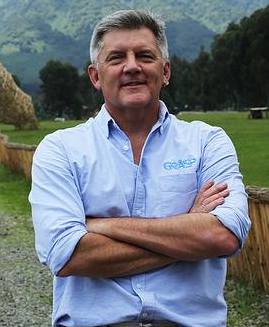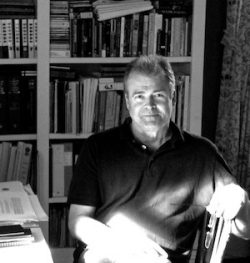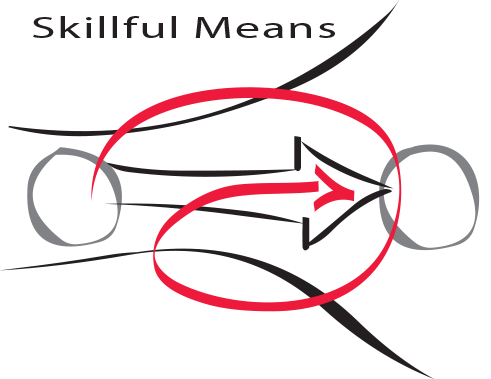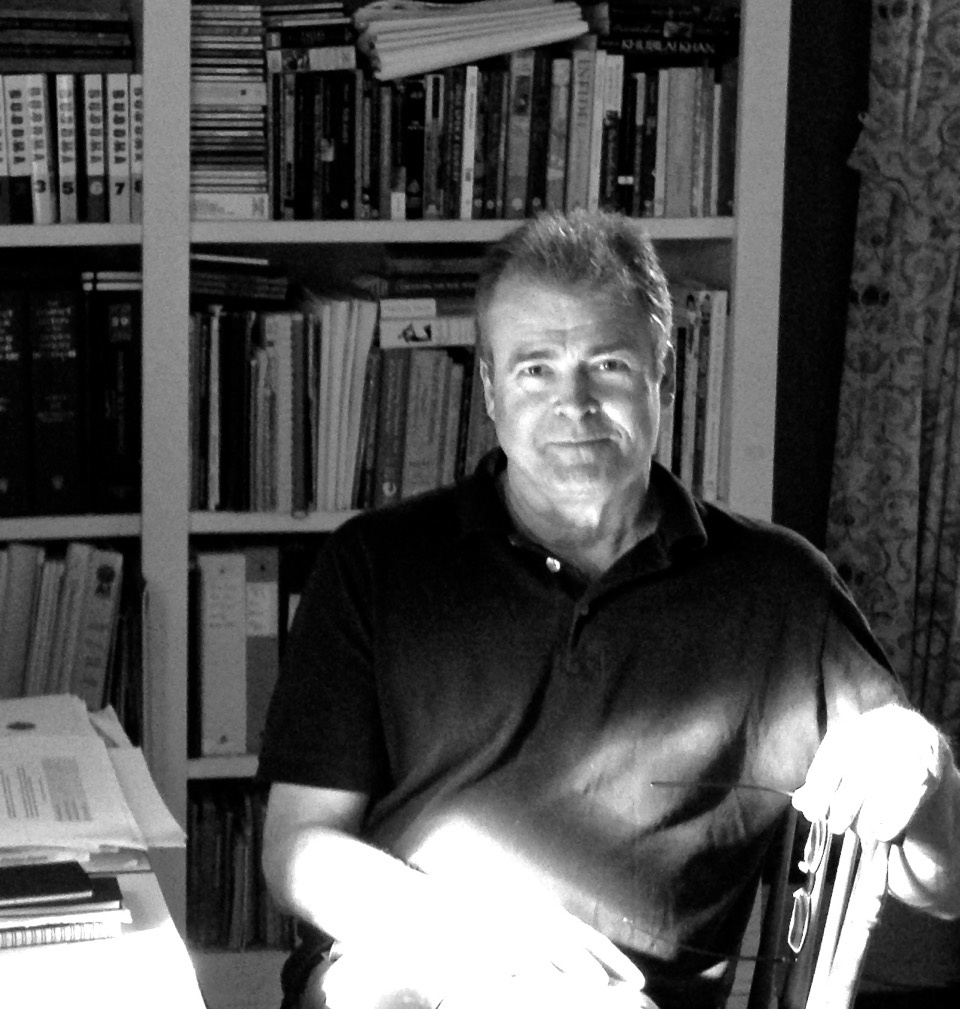The Principals
<Stephen McCormick
Stephen is Principal of Skillful Means. He has spent the last 20 years focused on helping organizations, communities and multi-stakeholder partnerships bring clarity to goals, strategies, processes, organizational structures and professional relations in order to accomplish critical tasks. He serves as chief process consultant on a number of ongoing collaborations involving public sector, private sector and community representatives. His public sector clients have ranged from the City of Aurora in Colorado to Zdrusenie miest a obci (the Association of Towns and Municipalities) in Slovakia. He also provides OD and strategy planning consultation, staff and board training, and evaluation services to foundations and non-profits in the United States, East Central Europe, the Caucasus, Central Asia and Africa.
From 2006 through 2010 Stephen was Senior Advisor to the Emirates Foundation, an Abu Dhabi (UAE) foundation focused primarily on piloting new social programs in a traditional Gulf society. He oversaw the launch of all the Foundation’s major programs, including the International Prize for Arabic Fiction (the Arab Booker Prize). From 1996 to 1998 Stephen was Director of Organizational Development at the Open Society Institute, resident in Budapest; he oversaw the establishment of the Department of Training and Development and the institutionalization of training programs for the 1000+ employees and board members within the network of foundations and institutes established by George Soros, and served as OSI’s main organizational troubleshooter. Prior to this, he was the Central European representative of the National Civic League and a Managing Director of Chautauqua International, Inc., an international consulting partnership working in the field of democratic governance. He has worked professionally in almost every country of East Central Europe and Central Asia, as well as in Madagascar, Senegal, the Philippines, France, Spain and South Africa.
From 1989-1991 he was resident in Kenya, as manager of a USAID-funded school renovation effort. While there he climbed Kilimanjaro 11 times, Mt. Kenya 4 times (including an ascent of the Diamond Couloir) and guided whitewater rafting trips on the Omo (Ethiopia), Ruaha and Rufigi (Tanzania) and Manamboul (Madagascar) rivers. From 1978 through 1988 he was an Instructor, Course Director and Program Director for the Colorado Outward Bound School.
Stephen holds a Masters degree from Yale University and a Diploma in Organizational Behaviour from London University. He is close to fluent in French, and was previous proficient in both Swahili and Slovak. He can say, in an impeccable accent, “I am sorry, I do not speak Hungarian/Arabic/Dari”, in Hungarian, Arabic and Dari.
Contact Stephen on stephen<at>skillfulmeans<dot>org
Stephen’s public key:
ID: 0x7D92C3B6
Fingerprint:
5B47 F7F6 424A D17A 8C9B AC31 C1F2 48AC 7D92 C3B6
Full key available here (MIT) or here (GPG)
David D. Chrislip
David founded Skillful Means. He has spent the past 40 years helping people enhance their leadership capacities and create visions and strategies for their organizations and communities by working together. The broader purpose of his work is to build civil society. His work focuses on three areas: civic leadership development, collaboratively addressing complex community issues, and organizational strategy and development. His roles include research, writing, process design, capacity building, leadership coaching and consulting, and facilitation. He has served as a Senior Associate of the National Civic League and as Vice President of Research and Development for American Leadership Forum. He is the co-founder of the Denver Community Leadership Forum. He has taught graduate courses in leadership and ethics at the University of Denver and at the University of Colorado at Denver. For 20 years, he was a senior Course Director with the Colorado Outward Bound School and the National Outdoor Leadership School. Previously he served in financial management positions with The Boeing Company.
Since 2007, David has been intimately associated with the formation and development of the Kansas Leadership Center serving first as Director of Faculty Development and now as Senior Fellow. An experienced seminar leader and consultant, Chrislip has worked with many communities and organizations, both nationally and internationally, and has conducted leadership development programs for several thousand students, managers and community leaders. He has written a number of published articles on politics, civic engagement, and civil society and is the co-author, with Carl Larson, of Collaborative Leadership: How Citizens and Civic Leaders Can Make a Difference (San Francisco: Jossey-Bass, 1994) and author of The Collaborative Leadership Fieldbook: A Guide for Citizens and Civic Leaders (San Francisco: Jossey-Bass, 2002). His new book For the Common Good: Redefining Civic Leadership, co-authored with Edward O’Malley, President of the Kansas Leadership Center, was published by KLC Press in June, 2013.
David Chrislip received his B.A. degree (1966) from Oklahoma State University in economics and history, an M.S. degree (1970) from Wichita State University in economics, and an M.P.A. degree (1982) from Harvard University’s John F. Kennedy School of Government. He is a serious master’s cyclist and regularly competes in the Strade Bianche (the “L’Eroica”) roadrace in Tuscany.
To find out more about Collaborative Leadership
Contact David on davidchrislip<at>gmail<dot>com
Senior Associates

Doug Cress
Doug is a leading global expert on biodiversity and conservation. He was most recently Vice President,Conservation at the Ocean Conservancy in Washington, DC, managing the Trash Free Seas program that comprises the organization’s largest suite of projects. He previously served as Chief Executive Officer of the World Association of Zoos and Aquariums (WAZA), in Barcelona, and before that was a Programme Coordinator at the UN Environment Programme (UNEP) in Nairobi, where he led the Great Apes Survival Partnership (GRASP) and contributed to projects on sustainable development, illegal wildlife trade and emerging infectious diseases. Before UNEP, he spent a decade overseeing efforts to protect great apes and their habitats and address the plight of apes in captivity.

Stephen McCormick
From 2006 through 2010 Stephen was Senior Advisor to the Emirates Foundation, an Abu Dhabi (UAE) foundation focused primarily on piloting new social programs in a traditional Gulf society. He oversaw the launch of all the Foundation’s major programs, including the International Prize for Arabic Fiction (the Arab Booker Prize). From 1996 to 1998 Stephen was Director of Organizational Development at the Open Society Institute, resident in Budapest; he oversaw the establishment of the Department of Training and Development and the institutionalization of training programs for the 1000+ employees and board members within the network of foundations and institutes established by George Soros, and served as OSI’s main organizational troubleshooter. Prior to this, he was the Central European representative of the National Civic League and a Managing Director of Chautauqua International, Inc., an international consulting partnership working in the field of democratic governance. He has worked professionally in almost every country of East Central Europe and Central Asia, as well as in Madagascar, Senegal, the Philippines, France, Spain and South Africa.
From 1989-1991 he was resident in Kenya, as manager of a USAID-funded school renovation effort. While there he climbed Kilimanjaro 11 times, Mt. Kenya 4 times (including an ascent of the Diamond Couloir) and guided whitewater rafting trips on the Omo (Ethiopia), Ruaha and Rufigi (Tanzania) and Manamboul (Madagascar) rivers. From 1978 through 1988 he was an Instructor, Course Director and Program Director for the Colorado Outward Bound School.
Stephen holds a Masters degree from Yale University and a Diploma in Organizational Behaviour from London University. He is close to fluent in French, and was previous proficient in both Swahili and Slovak. He can say, in an impeccable accent, “I am sorry, I do not speak Hungarian/Arabic/Dari”, in Hungarian, Arabic and Dari. 

David D. Chrislip
Since 2007, David has been intimately associated with the formation and development of the Kansas Leadership Center serving first as Director of Faculty Development and now as Senior Fellow. An experienced seminar leader and consultant, Chrislip has worked with many communities and organizations, both nationally and internationally, and has conducted leadership development programs for several thousand students, managers and community leaders. He has written a number of published articles on politics, civic engagement, and civil society and is the co-author, with Carl Larson, of Collaborative Leadership: How Citizens and Civic Leaders Can Make a Difference (San Francisco: Jossey-Bass, 1994) and author of The Collaborative Leadership Fieldbook: A Guide for Citizens and Civic Leaders (San Francisco: Jossey-Bass, 2002). His new book For the Common Good: Redefining Civic Leadership, co-authored with Edward O’Malley, President of the Kansas Leadership Center, was published by KLC Press in June, 2013.
David Chrislip received his B.A. degree (1966) from Oklahoma State University in economics and history, an M.S. degree (1970) from Wichita State University in economics, and an M.P.A. degree (1982) from Harvard University’s John F. Kennedy School of Government. He is a serious master’s cyclist and regularly competes in the Strade Bianche (the “L’Eroica”) roadrace in Tuscany.

Doug Cress
Doug is a leading global expert on biodiversity and conservation. He was most recently Vice President,Conservation at the Ocean Conservancy in Washington, DC, managing the Trash Free Seas program that comprises the organization’s largest suite of projects. He previously served as Chief Executive Officer of the World Association of Zoos and Aquariums (WAZA), in Barcelona, and before that was a Programme Coordinator at the UN Environment Programme (UNEP) in Nairobi, where he led the Great Apes Survival Partnership (GRASP) and contributed to projects on sustainable development, illegal wildlife trade and emerging infectious diseases. Before UNEP, he spent a decade overseeing efforts to protect great apes and their habitats and address the plight of apes in captivity..
.


